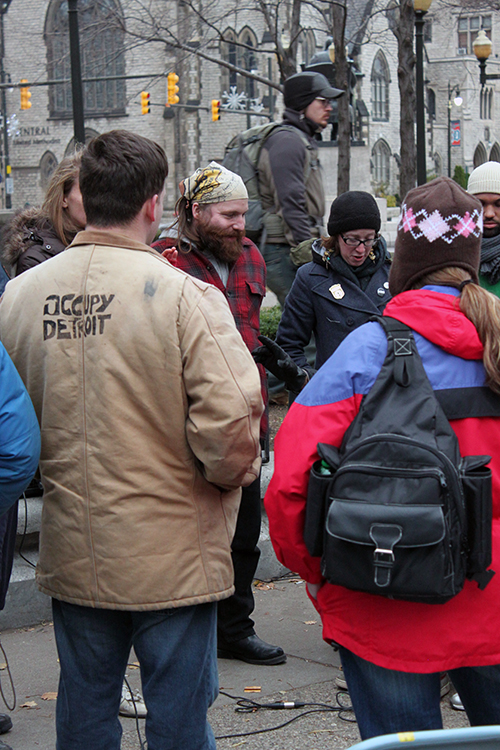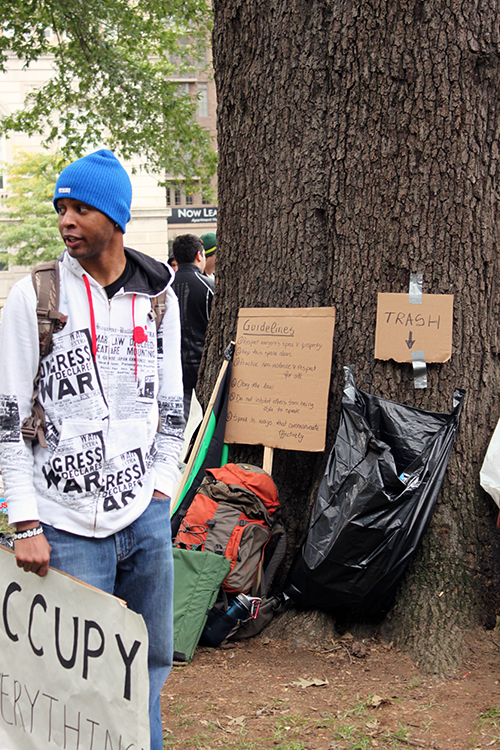 This Sunday at Capitol Hill Friends, we looked at Luke 10:1-24, the story of when Jesus sends out 72 of his disciples to go ahead of him into Samaria and share the good news: The kingdom of God has come near to you.
This Sunday at Capitol Hill Friends, we looked at Luke 10:1-24, the story of when Jesus sends out 72 of his disciples to go ahead of him into Samaria and share the good news: The kingdom of God has come near to you.
Jesus sends his followers out in utter vulnerability. He instructs them to take nothing with them for the journey – no money, no supplies, not even shoes! We know from the previous chapter that Samaria is not a safe place for the Jewish disciples. Rejection – possibly even violence – is a realistic expectation for these missionaries being sent into cross-cultural ministry. Jesus sends them out in pairs, so at least they have each other, but they’re basically defenseless.
As disciples of Jesus who find ourselves called to live in the midst of Empire, there is a great temptation to look for ways to protect ourselves. We live in a culture that is constantly retelling the story of domination: Money makes the world go ’round. Might makes right. You get what you deserve. It is an enormous challenge to remain open, to see the signs of the kingdom of God in our midst. And even when we can see it, the way of peace that we find ourselves called into by Jesus is so intensely counter-cultural that we have to wonder: Does following Jesus mean becoming a social outcast?
If Luke’s story is any indication, walking with Jesus will not make us popular. Our society’s mainstream is defined by those in the center – those who possess the most money, social influence and intelligence. These are the somebodys who run governments, direct economies, lead educational institutions and program the computers. Most of us want to be these people – to feel important and respected by the culture we live in.
 Yet as followers of Jesus, we are called to move away from the shiny, important center and instead to inhabit the margins of our society. Our God scatters the proud and brings down the mighty from their thrones. He fills the poor with good things but sends the rich away empty. We follow the homeless Messiah who was born in a barn with animals and was rejected and murdered by all the important people of his day. We worship the God who pronounces woe to the rich, self-satisfied mockers who live at the center, but who announces blessing on the poor, hungry and those who mourn.
Yet as followers of Jesus, we are called to move away from the shiny, important center and instead to inhabit the margins of our society. Our God scatters the proud and brings down the mighty from their thrones. He fills the poor with good things but sends the rich away empty. We follow the homeless Messiah who was born in a barn with animals and was rejected and murdered by all the important people of his day. We worship the God who pronounces woe to the rich, self-satisfied mockers who live at the center, but who announces blessing on the poor, hungry and those who mourn.
One of us at Capitol Hill Friends recently asked if our community is destined to be a fringe group, or whether there is a way for us to communicate the good news in a manner that appeals to the broader society. I think that this is a very good question, because there is a real tension about this in Scripture.
On the one hand, Jesus says clearly that his way is a narrow path that few will choose to walk in. Jesus models a hard-core prophetic ministry that few of us have the stomach for. On the other hand, Jesus calls us to share the good news with the whole world. He commands us to make disciples of all nations and to invite others to participate in the community that the Holy Spirit gathers in his name. So, which is it? Is the kingdom for a few, or for many?
The upside-down kingdom of Jesus is hard for a lot of folks to accept, especially those of us who who identify more with the prestigious center of our culture. Yet, despite the barriers that hold us back from accepting Jesus’ counter-cultural message, all things are possible with God. Even in the face of our natural tendency to shy away from his disorienting challenge, the Holy Spirit is working on our hearts and changing our lives.
 As a community gathered around the radical teaching of Jesus, is Capitol Hill Friends ever going to be mainstream? From the perspective of the prestigious center, the answer is clearly no! As friends of the crucified Messiah, we are called into the margins and abandoned places where Jesus heals the sick, casts out demons and teaches the people. As followers in his way of gospel nonviolence, we are inevitably led to join him outside the gates of the city.
As a community gathered around the radical teaching of Jesus, is Capitol Hill Friends ever going to be mainstream? From the perspective of the prestigious center, the answer is clearly no! As friends of the crucified Messiah, we are called into the margins and abandoned places where Jesus heals the sick, casts out demons and teaches the people. As followers in his way of gospel nonviolence, we are inevitably led to join him outside the gates of the city.
As friends of Jesus, we will necessarily be marginal from the perspective of the big shots in our society. Many respectable, mainstream people will consider us fringe. Yet, that doesn’t mean that we cannot have a big impact. The early Church in Jerusalem was a group on the margins – and it was also a thriving community of many thousands of people!
Then again, numerical growth is out of the question for a radical group like ours if we choose to play into the narrative of the mainstream culture. The good news of Jesus usually doesn’t sound very appealing to those in the center. But, to those on the margins, it is a breath of fresh air! How can we take this message to those who are ready to hear it?
We encounter hungry people everywhere we go. In every neighborhood and workplace, in every classroom and restaurant, there are those who are aching for the love, justice and power that Jesus offers us. Are we awake to it? How can we become more attentive to the signs of spiritual hunger and curiosity in those that we meet? How can we demonstrate the inexplicable love of Jesus to those around us, inviting them to come and see? What would it look like for us to get out of our comfort zone and take the good news to those who are ready to receive it?